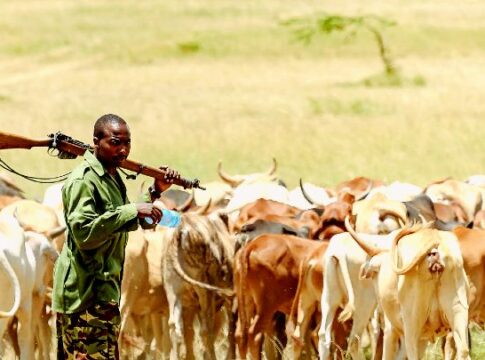Voters in Somaliland are heading to the polls today for their fourth general election since breaking away from Somalia in 1991.
While Somaliland has its own government, currency, and passports, its sovereignty remains unrecognized internationally. This election comes at a time of heightened regional tensions, particularly over a controversial port deal with Ethiopia, which has caused a diplomatic rift with Somalia.
Incumbent President Muse Bihi Abdi is seeking re-election after a two-year delay, while his main challenger, Abdirahman “Irro” Mohamed Abdullahi, of the opposition Wadani party, promises more opportunities for women and youth. The election is shaping up to be a pivotal moment for Somaliland, as both candidates position themselves on the international stage. Abdi’s campaign has been fueled by a landmark port deal with Ethiopia, which could potentially lead to global recognition for Somaliland if successful.
READ MORE: NILEST Aims to Restore Nigeria’s Leather Legacy with Mini Tanneries in 36 States
Ethiopia’s Prime Minister Abiy Ahmed and President Abdi signed a deal in January granting Ethiopia a 50-year lease on the Berbera Port in exchange for support of Somaliland’s quest for recognition. While Ethiopia has not officially recognized Somaliland, the agreement is seen as a crucial step toward international acknowledgment. The deal could unlock $3.4 billion in revenue for Somaliland and offer Ethiopia access to critical maritime trade routes.
However, the deal has sparked outrage in Somalia, which continues to view Somaliland as part of its territory. Ethiopia’s involvement has further strained relations between Ethiopia and Somalia, with Egypt backing Somalia and providing military support. Turkey, a close ally of Somalia, has attempted to mediate, but tensions remain high.
While many in Somaliland see the deal as a potential game-changer, analysts warn of escalating regional tensions. The agreement could lead to a proxy conflict between regional powers, with the situation remaining unpredictable.
Mauritius Opposition Secures Landslide Victory
In a separate election story, opposition leader Navin Ramgoolam has won a resounding victory in Mauritius’s parliamentary election. His coalition, the Alliance for Change (ADC), secured 62.6% of the vote, clinching 60 out of 62 seats in the National Assembly. Ramgoolam, a former prime minister, has now secured a fourth term, cementing his political dominance in the Indian Ocean nation.
The election, which saw a high voter turnout, has been hailed as a clear expression of the will of the people. Ramgoolam’s victory marks a significant shift in the political landscape, as his coalition promises to address issues such as economic development and social welfare. Supporters celebrated across the country as results poured in, signaling the public’s strong support for the opposition’s agenda.
With Ramgoolam’s leadership, the ADC aims to steer Mauritius toward continued prosperity, though the party faces the challenge of meeting the high expectations of voters. Ramgoolam’s win is expected to bring about significant political and economic changes in the coming years.




